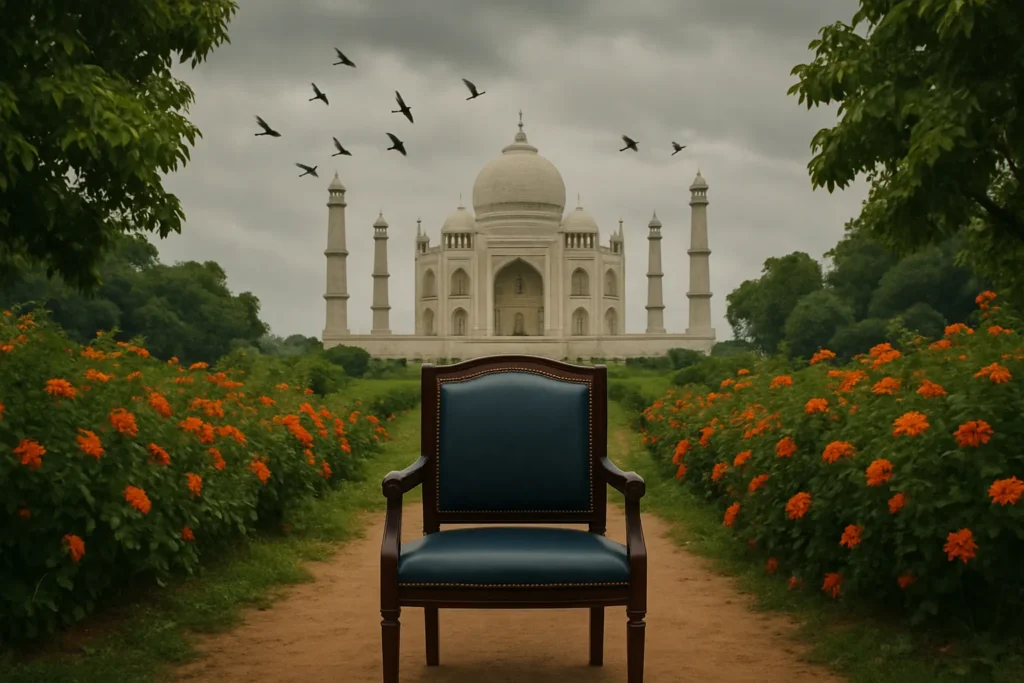Unpacking Trump’s Kashmir Mediation Gambit
Why would a sitting U.S. President offer to step into the world’s most fraught territorial conflict? The question nearly answers itself: international grandstanding, a misreading of history, and above all, an indifference to regional sensitivities. When Donald Trump unilaterally proposed U.S. mediation in the Kashmir dispute following a fragile ceasefire between India and Pakistan, Indian political circles erupted. The audacity of Trump’s offer—broadcast on social media, with little apparent consultation with either side—has not only baffled many observers, but also reignited a fierce debate within India about diplomatic sovereignty and government transparency.
Rajya Sabha MP Kapil Sibal did not mince his words, declaring that “many questions will be raised” about the government’s handling of this ceasefire development and the subsequent American intervention. Echoing him, Congress stalwart Manish Tewari dismantled the ahistorical framing of Kashmir as a “1,000-year-old conflict,” forcefully reminding the world that the roots of the present crisis date to 1947, the moment of independence and partition, not some ancient grudge. Shiv Sena (UBT) leaders, too, roundly rejected the premise that external mediation is either needed or wanted.
Beyond that, the sequence of events in Washington raises its own alarm bells. The ceasefire agreement—a brief ray of hope in a long-tormented region—was first announced in the U.S. capital, hours before the governments of India or Pakistan officially confirmed its existence. Was this merely diplomatic sleight of hand or something more troubling: a sign that major decisions regarding national security are being shaped, or at least finessed, well beyond New Delhi’s oversight?
Calls for Accountability and Transparent Diplomacy
At the heart of the criticism lies not just wounded national pride but a clear-eyed demand for accountability and transparency from India’s leadership. Congress MPs have seized the moment to press for an all-party meeting—one chaired not by intermediaries or lesser functionaries but by Prime Minister Narendra Modi himself. Kapil Sibal’s pointed reminder resonates across party lines: during previous crises, such as the fraught Indo-U.S. nuclear negotiations or the aftermath of the Mumbai attacks, former Prime Minister Manmohan Singh personally called all-party meetings, building consensus and offering regular briefings to Parliament.
It’s not nostalgia; it’s a blueprint for responsible governance. Political scientist Neelanjan Sircar observed on a recent NDTV panel: “Parliamentary democracy demands transparency, especially on security issues. Confidence-building is vital, not just with adversaries, but within the nation’s own polity.” When governments operate in an echo chamber, shutting out independent perspectives or hard questions, policy becomes vulnerable to both error and external manipulation.
Congress leader Jairam Ramesh’s intervention illuminated another troubling ambiguity: if America is brokering new understandings, does it signal an abandonment of the landmark Simla Agreement, the 1972 accord that established bilateralism as the cornerstone of India-Pakistan relations? Ramesh pointedly asked whether diplomatic backchannels to Pakistan have been quietly revived, and if so, why Parliament and the public remain in the dark. The concern is not hypothetical. In the age of Wikileaks and 24/7 news, “plausible deniability” is no longer a defensible approach to sensitive diplomacy.
The Congress’s demand for a special session of Parliament reflects a broader anxiety about shrinking democratic space in India’s current political milieu. By urging all opposition parties to boycott any consultation unless Modi himself presides, Sibal and his peers are staking out not just a procedural hill to die on, but an existential stand for legislative oversight.
“If Manmohan Singh were in power today, he would have called an all-party meeting and a special session of Parliament to address this issue head-on. Leadership is about inclusion—not exclusion.”
The Limits of Outsider Solutions: Why Kashmir Can’t Be Outsourced
What does history teach us about third-party mediation? The last century is littered with failed attempts by world leaders to parachute into the India-Pakistan conflict with grand, ill-conceived solutions. Time and again, distant powers have misunderstood regional realities, sowed further discord, or simply reinforced the legitimacy of extreme positions on both sides. President Jimmy Carter’s cautious but ultimately ineffective approach in the late 1970s, Bill Clinton’s shuttle diplomacy during the Kargil crisis, and countless UN envoys have struggled, for good reason.
At its core, the Kashmir dispute is inseparable from questions of national identity, sovereignty, and self-determination. Harvard historian Srinath Raghavan cautions that “importing solutions or mediators risks inflaming nationalist backlash while offering neither legitimacy nor durable peace.” No wonder Indian leaders across the spectrum—not merely Congress, but the BJP in previous incarnations—have typically resisted any hint of foreign involvement in South Asia’s most volatile conflict.
And yet, the desire for a solution remains universal. The Congress party’s call for a parliamentary inquiry into all recent military incidents—including the Pahalgam attack and Operation Sindoor—captures both the gravity and immediacy of the stakes. Any move toward reconciliation, whether through backchannels or transparent dialogue, must rest on democratic foundations. Short-circuiting Parliament or obscuring facts simply erodes public trust and strengthens nativist voices eager to paint constitutional debate as a sign of weakness.
Kashmir’s future, and with it the security of millions, cannot be decided by tweet, nor by foreign fiat. As the Pew Research Center notes, “a robust democracy protects both itself and its minorities best when all branches of government share stewardship over security and foreign policy.” The ongoing standoff is a test of not just diplomatic acumen, but of the integrity of India’s democratic institutions. You have to ask: if not now, when will the public demand full accountability for decisions made in their name?

